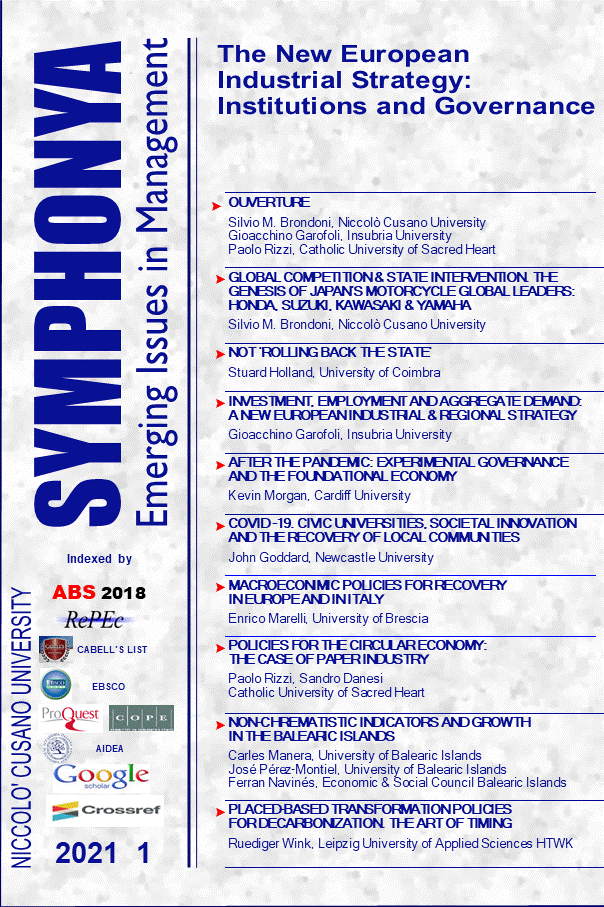Not ‘Rolling Back the State’
DOI:
https://doi.org/10.4468/2021.1.03hollandKeywords:
Industrial Policy, State Intervention, Global CompetitionAbstract
One of the premises of rising neoliberalism from the 1980s had been the claim of Ronald Reagan that government is the problem not the solution, readily endorsed, in parallel, by Margaret Thatcher on coming into government. Drawing on a range of international examples this paper shows that this was utterly uninformed, that deregulation of finance in the US led to the worst financial crisis in 2008 since 1929 and that Thatcher's scrapping of the 1970s Labour governments' industrial policy instruments led to major de-industrialisation in the UK which influenced the 'No' vote in the 2016 referendum on whether Britain should remain in the European Union. While the US nonetheless pursued an industrial policy by stealth which promoted a range of advanced technology corporations and that Germany, embodying liberal market principles after WW2, recently has endorsed the case for not only a German but also European industrial policy and led in advocating a European Green New Deal modelled on the Roosevelt New Deal which recovered the US from The Depression of the early 1930s and convinced Truman to support the Marshall Aid programme that also recovered Western Europe after the cataclysm of WW2.
Downloads
Published
How to Cite
Issue
Section
License
Copyright (c) 2021 Symphonya. Emerging Issues in Management

This work is licensed under a Creative Commons Attribution 4.0 International License.
The authors retain all rights to the original work without any restrictions.
License for Published Contents

You are free to copy, distribute and transmit the work, and to adapt the work. You must attribute the work in the manner specified by the author or licensor (but not in any way that suggests that they endorse you or your use of the work).
License for Metadata

Symphonya published articles metadata are dedicated to the public domain by waiving all publisher's rights to the work worldwide under copyright law, including all related and neighboring rights, to the extent allowed by law.
You can copy, modify, distribute and perform the work, even for commercial purposes, all without asking permission.



